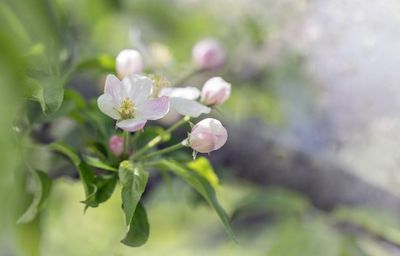If you plant one apple tree and there are no others around for miles, chances are you’re never going to see any fruit…usually. While rare, there are actually some apples that purportedly pollinate themselves. Keep reading to learn more about self-fruiting apple trees.
Can Apples Self-Pollinate?
For the most part, apples can’t pollinate themselves. Most varieties of apple are dioecious, and there’s nothing we can do about it. If you want to grow an apple, you are going to have to plant a neighboring apple tree. (Or plant it near a wild crabapple tree. Crabapples are actually very good pollinizers). There are, however, some varieties of apple tree that are monoecious, which means only one tree is required for pollination to occur. There aren’t very many of these varieties and, truth be told, they are not guaranteed. Even successful self-pollinating apples will produce far more fruit if they are cross pollinated with another tree. If you simply don’t have the space for more than one tree, however, these are the varieties to try.
Varieties of Self-Pollinating Apples
These self-fruiting apple trees can be found for sale and are listed as self-fertile:
Alkmene Cox Queen Granny Smith Grimes Golden
These apple varieties are listed as partially self-fertile, which means that their yields will likely be noticeably lower:
Cortland Egremont Russet Empire Fiesta James Grieve Jonathan Saint Edmund’s Russet Yellow Transparent
